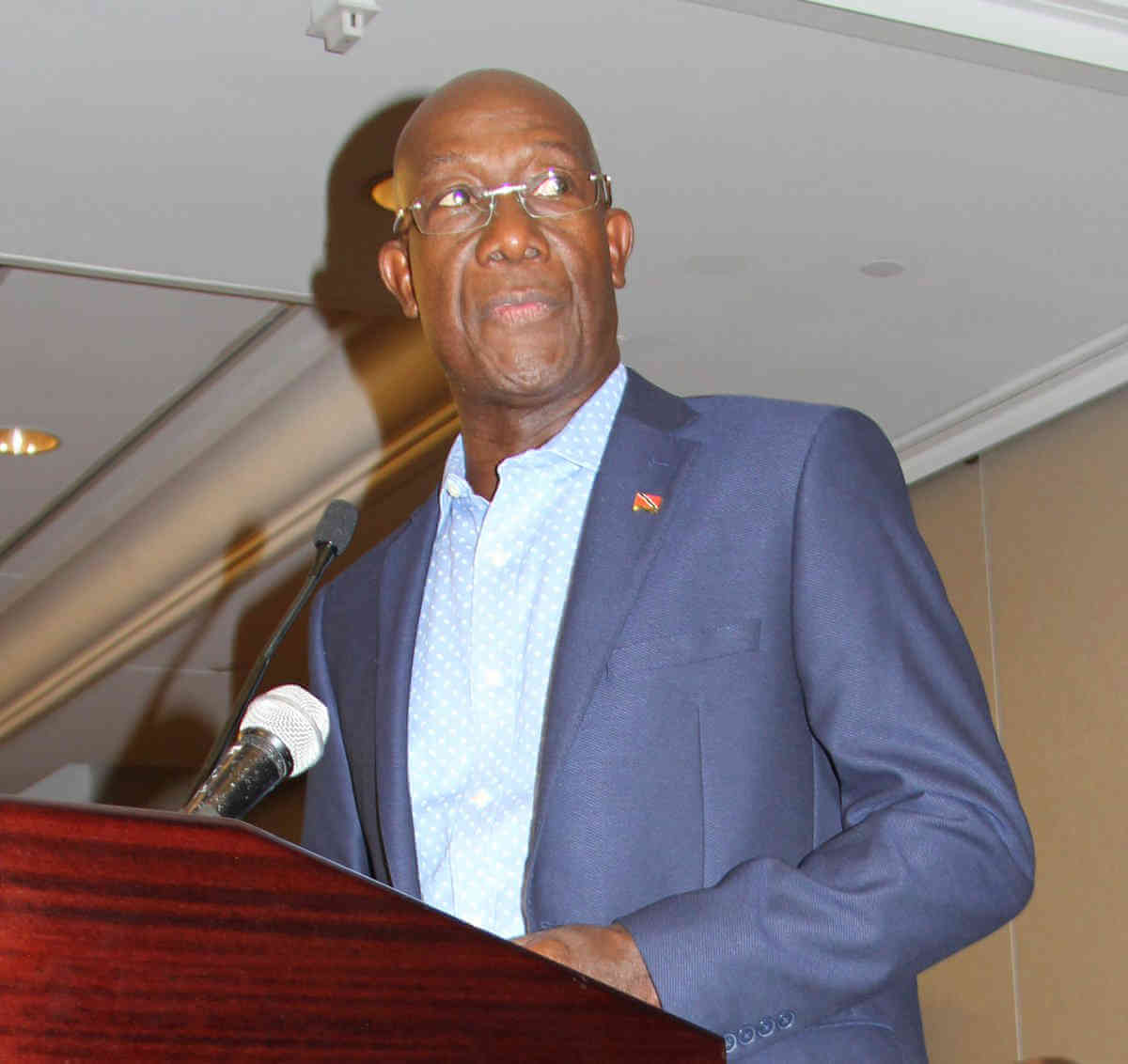A major row has erupted in Trinidad over the country’s COVID-19 repatriation exemption scheme for nationals stranded overseas with various sections of society criticizing the cabinet for giving preferential treatment to relatives and friends of high officials including the New York-based daughter of Prime Minister Keith Rowley.
Rowley’s administration has been under severe pressure to ease the closed border restrictions which have been in place for more than nine months. Locals want the closed system to be linked mainly to non nationals, arguing that citizens and nationals should be allowed to return home once they comply with the pandemic protocols as many have run out of money, have accommodation and other problems and are destitute in foreign lands.
The issue has raised its rather ugly head after Dr. Sonel Rowley-Stewart made it back home and in time for Christmas in mid December after applying for a return exemption in early November. Rowley was forced to defend the family’s honor by denying that she was given preferential treatment and allowed to jump the queue while dozens of others await permission to return home.
Attorney General Faris al Rawi has also come under fire because the system had allowed his 21-year-old son, Abraham, to return home in mid December. Many believe that he has also received preferential treatment, a charge his dad has denied
“My son was out of the country and I consistently said, this is just something that I consider repulsive,” he said, noting that Security Minister Stuart Young has been working tirelessly to bring nationals back home in recent months despite reduced airline flights. “He has tried to help every single person. I have witnessed Stuart Young’s constant agony on trying his very best, trying to get people back into the country,” the Guardian reported. Cabinet this week said the system is being reviewed and tweaked to make it not only easier to return home but for increased social activities and interactions including larger numbers of people being allowed to attend funerals and other events.
PM Rowley, meanwhile, said changes will be made to the system in 2021 but that “is no guarantee that the grumbling will be eliminated because these restrictions by their very nature will adversely affect some people more than others. Picking on my family or the minister does not change the fact that once the border is closed and we are managing the inflow, there will be enough stories, grumbling and lies to fill the many voids,” he told the newspaper.
Several other Caribbean Community countries have also been struggling to find the right balance in relation to opening borders and managing arrivals but the Trinidad and Tobago cabinet has been among the strictest and most conservative maintaining that this approach has helped to stem the tide of pandemic infections on the island.
Meanwhile, authorities are also rushing to repatriate dozens of locals who were working on Canadian farms in the spring and summer with special Caribbean Airline flights being arranged for them. Two separate groups have already been flown home.
“As of July 29 there were 5,539 applications made to enter Trinidad and Tobago. As at Dec. 23, we had granted 9,557 exemptions to enter Trinidad and Tobago. This shows that the vast majority of people who were genuinely stuck outside as at March 22 were granted exemptions to return,” the minister said, attempting to ward off attacks about favors being granted to some while others have to wait for approvals.


























